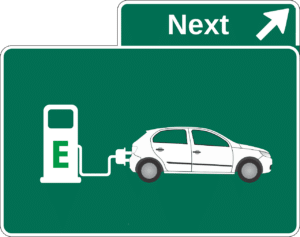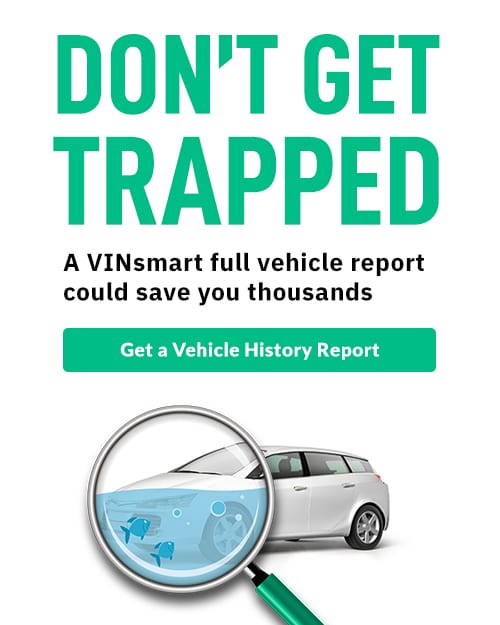
If you’ve ever been to Las Vegas it’s likely you’re familiar with high risk/reward situations. One wrong roll of the dice and lady luck seems to turn her back on you. Similarly, buying a vehicle with a lien on the title often seems like a pretty bad hand to the average consumer. Most people will tell you that there are hassles and headaches from start to finish. However, once you know the truth about lien titles the experience becomes far less like craps and far more like blackjack.
While 21 may seem equally risky, those who know what they’re doing will count cards and usually walk away from the house big winners because they’ve found the way to remove the danger and uncertainty. In effect, they’re no longer gambling and with the right knowledge about lien titles, you won’t be gambling either. Let’s dig into what lien titles really are. We’ll find out all the dangers and how to avoid them. We’ll even learn how to take advantage of the situation and walk away with more money in your pocket.
What is a lien title?
Trying to buy a car that has a lien on the title simply means that the seller still owes money to a third party who financed the vehicle. Of course, this means that they can’t sell you the vehicle without paying off the balance of the loan. There’s no denying that this third party, whoever they may be, adds a layer of complexity to the sale.
For instance, it is more difficult to get a loan for a vehicle that has a lien on it. In addition, you won’t be able to register or insure the car until the lien is discharged and the title is released to you. Of course, that means that the car won’t be in your name either. So getting the lien discharged is paramount if you’re actually going to purchase the vehicle.
How can you determine if a car has a lien on it?
We’ve stressed in the past how vital getting a good VIN Check is. This is just one more example of how important that step truly is. A VIN history report will not only alert you to a lien on the vehicle, but it will also tell you about other issues that may be deal-breakers for you. That includes if the car may, in fact, be stolen, salvaged, or have a history of serious accidents. Truly, it should be your first step when you start to think seriously about buying a particular car.
If you just need to verify if there’s a lien on the title you can look it up on the website for your local DMV. They provide that information nationwide to ensure buyers are given full disclosure about this particular situation. In addition, should you get the chance to see the actual title, it will be printed in clear language to alert you of its status.
Of course, it’s unlikely that the seller will have access to a title with a lien on it unless they only recently discharged the loan, in which case you’ll still want to verify that before assuming otherwise. It’s important to make a distinction too, paying the load off doesn’t mean that the loan company has actually discharged the lien. So don’t take a sellers word for it or even copied paperwork that shows the loan paid in full. Insist on proof from the lien-holder that it is in a fully discharged status.
The Transaction
Once you know the vehicle has a lien the power is all yours. The next information you need is how much will cover the loan and get the title released. If the seller isn’t willing to give you that information it’s time to walk away. They’re likely trying to withhold that number because it’s big and they are hoping that you pay them enough for the car so that they can pay it off and then some.
When sellers have a large dollar amount left, it’s oftentimes possible to get an incredibly lucrative deal on the vehicle because by paying off the remainder of the loan you’re in effect freeing the seller from being upside down financially. Don’t underestimate the impact that can have. I know first hand of many deals where thousands of dollars were saved on a similar car simply because a buyer was willing to go through the minor hassle of dealing with a lien titled car.
Moving forward on a deal on a lien titled vehicle doesn’t mean you have to throw caution to the wind. If you end up going to the lien-holder with the seller you may be able to pay the lender directly in the presence of the seller. It is absolutely vital to get a signed written agreement between all parties before any money changes hands here. Another option is to have the seller refinance the balance of the loan into a personal loan. That will effectively remove the lien from the title of the vehicle and allow it to be purchased with the lien now fully discharged. Finally, you may consider utilizing an escrow service. While there will be a small fee, it can pay for itself when a deal goes sideways. Even when the deal goes as planned, it’ll provide real peace of mind and that in and of itself is worth its weight in gold.
Finally, if you’re the deal is good enough that you’re willing to pay the lien yourself in payments it’s important to understand that there may be additional responsibilities for you since the vehicle is technically owned by the lien-holder. One example would be that typically you’ll be required to carry comprehensive, or “full coverage” insurance on the vehicle in question until the lien is discharged. No matter the particular situation, you’re now completely capable of making a fully informed decision about negotiating for a car that has a lien on the title.
Are you a car dealer? Check out our dealer program!
Did you know vehicle history reports increases the likelihood of a purchase by 90%? Build that trust with VINsmart vehicle history reports!
Featured
Tags
Tags
Newsletter

Matthew Beasley
I am the Director of Marketing at VINsmart and previously worked for Cox Automotive in the marketing department designing advertisements for Autotrade and Mainhiem. I wouldn't call myself an "Automotive Enthusiast"; however, I do love marketing in the automotive industry. I've become an EV junky recently. I am a Tesla owner and have a new found love for advanced technology in automotive.




